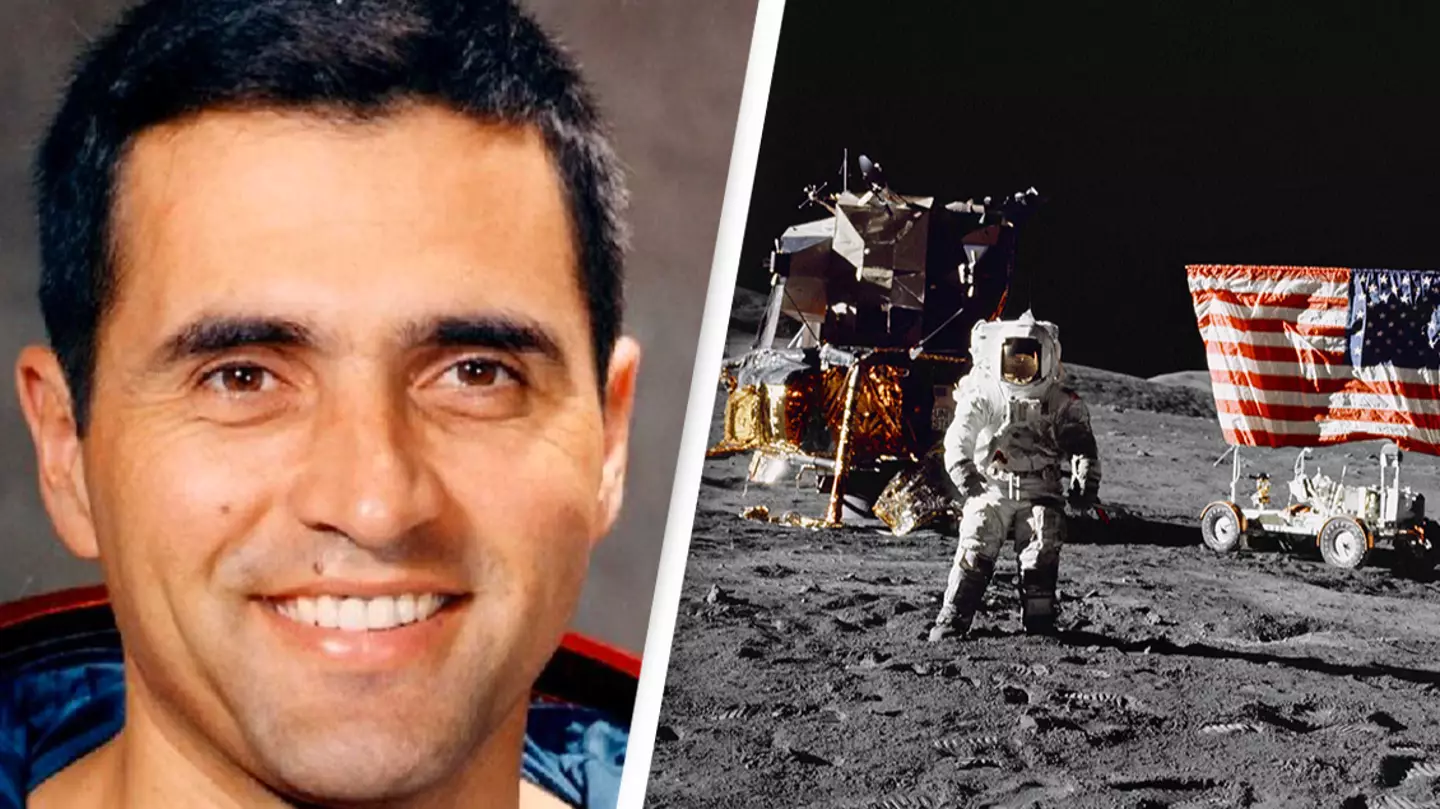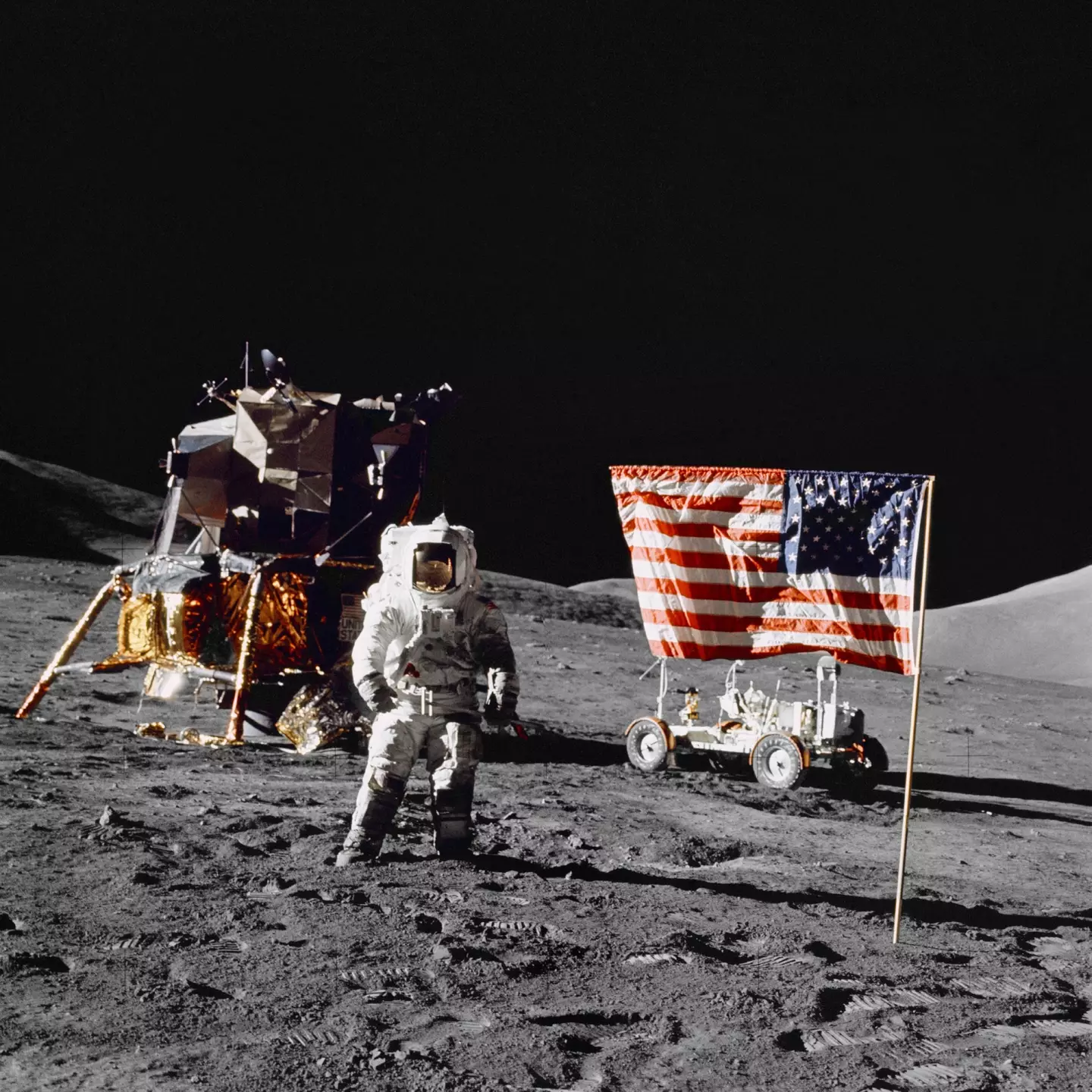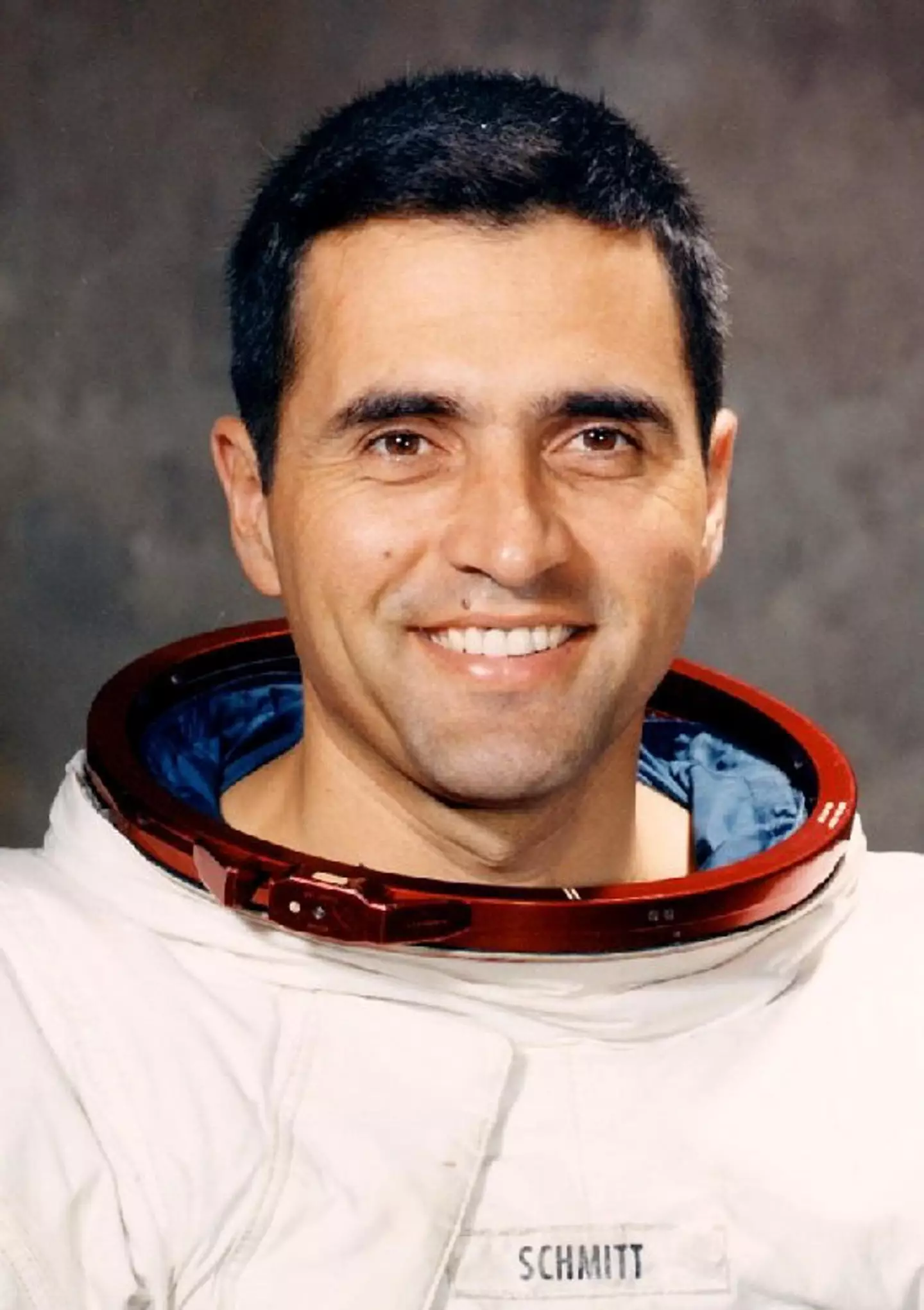
Imagine dedicating your life to studying for one special moment, only to realise the very thing you've been trying to get closer to could kill you?
Deep, right?
The only scientist who got to walk on the moon sadly found out he was allergic to it. What a bummer.
Advert
Apollo 17 astronaut Harrison H. Schmitt discovered that he was allergic to the moon while returning to the vessel which had landed on the lunar surface.

Schmitt, who walked on the moon in December 1972, was part of the final crewed mission to reach the moon before the Apollo program ended.
As a geologist, Schmitt spent most of his time on the moon's surface collecting rock samples from around the Taurus-Littrow valley, near the infamous Sea of Serenity.
Advert
Schmitt's job was to collect samples from the moon so that they could be researched back on earth. These findings included Troctolite 76535 which was described as 'without doubt the most interesting sample returned from the moon' by NASA.
However, lunar dust from the moon's surface got stuck on the suits, boots and tools used by Schmitt and his colleague, Eugene Cernan, which was then transferred into the landing module.
When Schmitt took off his helmet once securely back in the vessel, he became congested and began to notice issues with his breathing.

In 2019, he told the Starmus space festival audience: "First time I smelled the dust I had an allergic reaction, the inside of my nose became swollen, you could hear it in my voice.
Advert
"But that gradually went away for me, and by the fourth time I inhaled lunar dust I didn't notice that."
However, a fellow astronaut had an even more severe reaction.
Schmitt added: "Whereas a flight surgeon taking suits out of the Apollo 17 command module, after we had splashed down, he had such a reaction that he had to stop doing what he was doing."
Schmitt also expressed his concern for astronauts going on future missions, saying that the lunar dust could hinder their health and their research if it was to come into contact with someone who was also affected by it.
Advert
“For some individuals we need to find out whether they are going to have a reaction, if they are going to be exposed chronically to Moon dust," he said. “Now my suggestion is don’t ever let them be exposed to lunar dust and there are many engineering solutions since I was flying to keep dust out of the cabin, to keep it off the suit. It’s going to be primarily an engineering problem.”